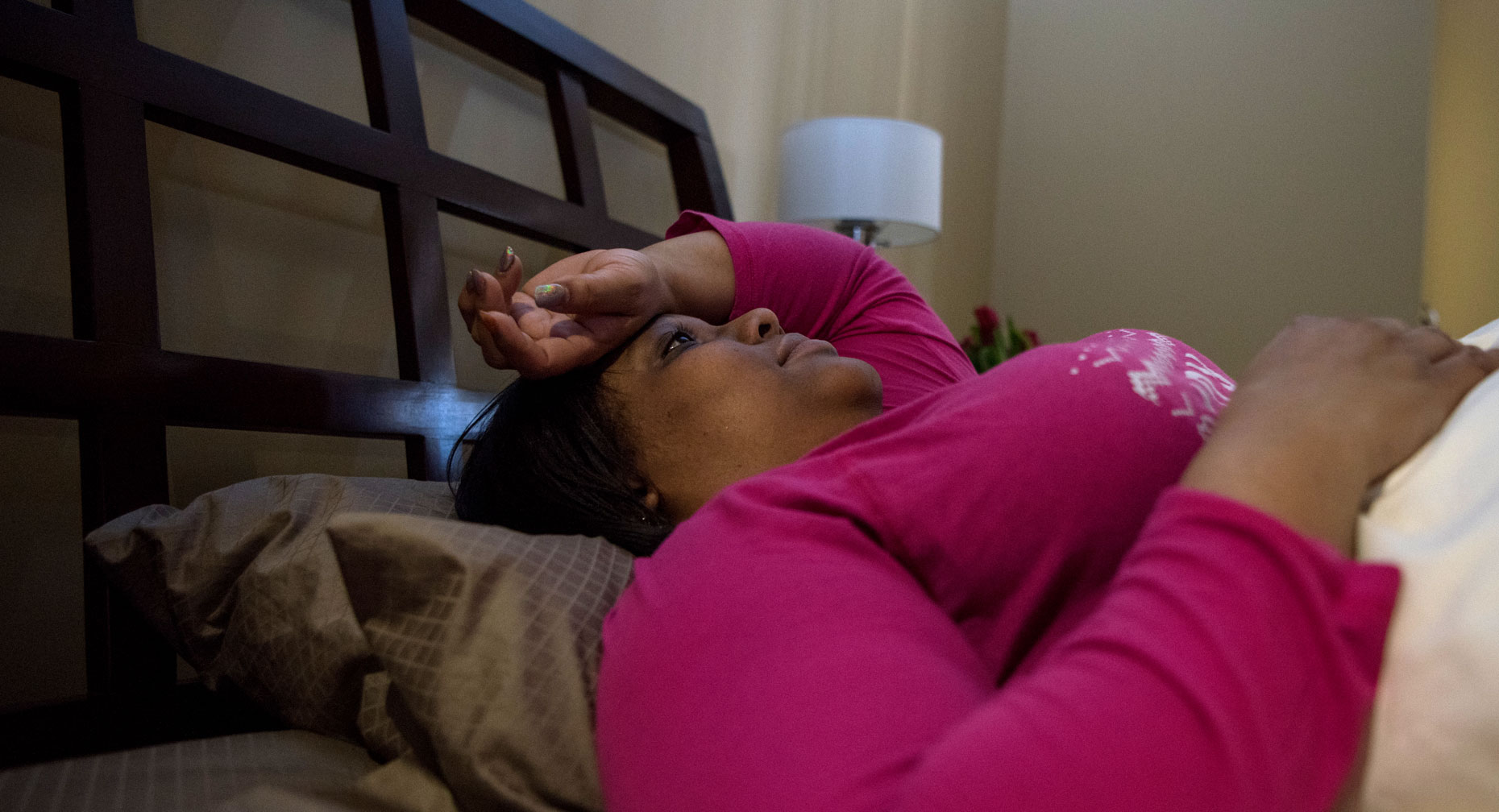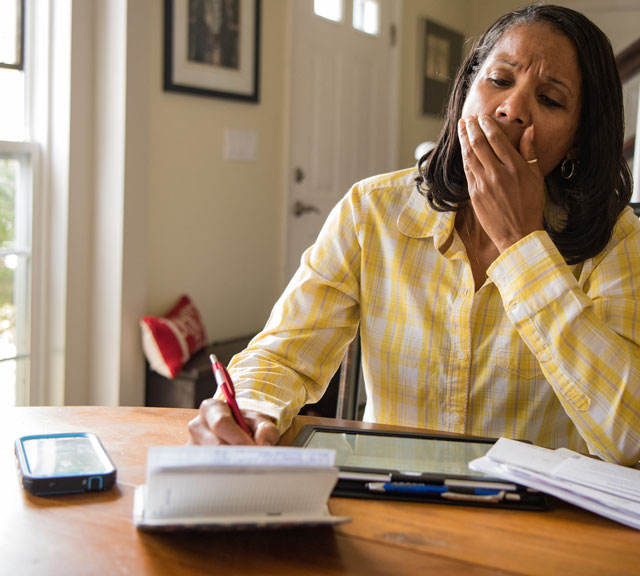When Worries Keep You Up at Night

Find Your Perfect Match
Answer a few questions and we'll provide you with a list of primary care providers that best fit your needs.
Most of us know what it’s like to toss and turn in bed with a head full of worries. Whether you’re having anxious thoughts about your kids, work, finances or love life, sometimes you may have trouble drifting off to sleep.
It’s normal for worries to cause an occasional night or two of sleeplessness. Anxiety is a normal reaction to stress and uncertainty. It’s your body’s way of protecting you, helping you stay alert and watchful.
But if your anxiety is persistent, seemingly uncontrollable and overwhelming, and it keeps you from living your life normally – like getting a good night’s sleep – you may have an anxiety disorder.
Seven of 10 adults who report having anxiety daily say they have trouble sleeping.
Does Anxiety Affect Sleep, or Vice Versa?
 It can go both ways, actually.
It can go both ways, actually.
Anxiety, especially anxiety disorders, can affect your sleep. Racing thoughts, obsessive worrying, physical tension and/or a “jittery” feeling can make falling asleep nearly impossible.
Seven of 10 adults who report having anxiety daily say they have trouble sleeping, according to the 2007 Stress and Anxiety Disorders Survey, commissioned by the Anxiety Disorders Association of America.
And the survey found that three-fourths of adults with stress- or anxiety-induced insomnia say their sleep problems have increased their level of stress and anxiety.
The Fall Out of Anxiety and Sleep Troubles
Besides putting you at higher risk of developing an anxiety disorder, sleep deprivation – compounded by the anxiety – can have serious short- and long-term implications for your health and well-being. This includes increasing your risk of:
- Accidents and injury
- Heart disease
- Heart failure
- Irregular heartbeat
- High blood pressure
- Stroke
- Diabetes
- Obesity
So, it makes sense to see your physician if you’re suffering from anxiety, lack of sleep, or both. She’ll work with you to determine the underlying causes and recommend a treatment plan.
You may find that many of the same tips that can help reduce anxiety can also help you sleep better.
Find Your Perfect Match
Answer a few questions and we'll provide you with a list of primary care providers that best fit your needs.
Source: Anxiety and Depression Association of America; National Sleep Foundation




.tmb-card-head.webp?sfvrsn=680c0961_8)